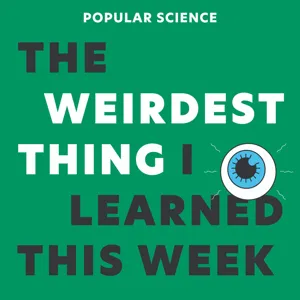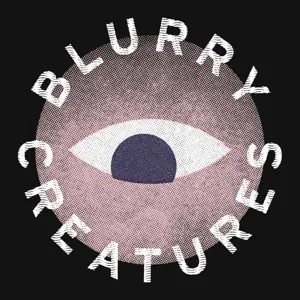Podcast Summary
Discussing AI and CRISPR in Food Production: Bayer's CEO Bill Anderson talks about using AI and CRISPR technology to enhance food production, while Angie simplifies home projects with skilled pros and new tools.
Technology is playing a crucial role in addressing global challenges, such as food production, through the use of artificial intelligence and digital tools. In the latest episode of the Tools and Weapons podcast, Bayer CEO Bill Anderson discusses how his company is using AI and CRISPR technology to increase food production without fertilizers. Meanwhile, Angie aims to simplify home projects by connecting users with skilled professionals and new tools. These developments highlight the power of technology in making everyday tasks more efficient and solving complex problems. Additionally, at Popular Science, editors share quirky facts they come across in their work, showcasing the endless possibilities and intrigue in science and technology.
Ancient Greeks and Romans valued long foreskins as a symbol of male beauty: Ancient Greeks and Romans admired long foreskins as a sign of masculinity, contrasting modern beliefs
Ancient Greek and Roman men prized a long foreskin as a symbol of male beauty, contrary to modern beliefs. This is evident in the famous statue "Boxer at Rest," which depicts a hyper-realistic boxer with a bronze penis tied up. The foreskin, an extension past the glans of the penis, is typically covered in youth but less so as one ages. This cultural appreciation for a long foreskin was akin to their admiration for other physical attributes, like the buttocks. This discovery challenges modern perceptions and sheds light on the historical context of ancient Greek and Roman ideals of masculinity.
Ancient Greek Preference for Smaller Penises: Ancient Greeks valued smaller penises with extended foreskins, associating larger ones with barbarism. They also believed in emotional connections through homosexuality and considered circumcised penises as a sign of barbarism.
Ancient Greek ideals for male sexual organs differed significantly from today's standards. They preferred a smaller penis with an extended foreskin, often associating larger penises with barbarism. This preference can be seen in classical statues with tiny penises. Ancient Greeks also believed in controlling sexual urges and often engaged in homosexual activities with their male friends for emotional connection. They considered circumcised penises as a sign of barbarism and depicted them as grotesque in their artwork. To address potential discrepancies in appearance, they used a device called a Heino Desmi, or a dog leash, to hide the glans when necessary. This historical context provides an intriguing perspective on how societal norms and ideals have evolved over time.
Ancient civilizations practiced retracting and securing their foreskins for practical and aesthetic reasons: Ancient Romans and Greeks kept their foreskins hidden for sports and modesty, with some also practicing genital piercings for preserving voice and virginity.
In ancient civilizations like Rome and Greece, men practiced a custom of retracting and securing their foreskins for both practical and aesthetic reasons. This was commonly depicted in art and associated with athletes and men of shame who needed to be naked. It served as a way to keep the genitals out of the way during physical activities and prevent the head of the penis from being exposed. Scholars believe that this practice may have been widespread and was influenced by the belief that having a naked penis was embarrassing. Additionally, there were ancient practices of genital piercings, such as infibulation, where the foreskin was pierced and fastened shut, which was believed to preserve the voice by preventing ejaculation. While the origins and motivations behind these practices are complex, they highlight the cultural norms and attitudes towards nudity and sexuality during that time. It's important to note that this discussion does not advocate for or against modern practices such as circumcision, but rather sheds light on historical practices and their potential significance.
Historical practices and beliefs surrounding male genital modifications: Throughout history, various cultures held different beliefs and practices regarding male genital modifications, often with symbolic meanings, but some practices had potential harms.
Throughout history, there have been various cultural practices and beliefs surrounding the length and modification of the foreskin on the male genitalia. Some civilizations, such as the Greeks and Romans, valued long foreskins and even used safety pins to secure them, while others, like the Hebrews, practiced circumcision. These practices often held symbolic meanings, such as signifying social status or religious adherence. For instance, ancient Roman poetry suggests that the locked foreskin of actors was a source of intrigue and desire. However, some practices, like stretching and tying infants' foreskins, were not without controversy and potential harm. In the 1700s, some physicians suggested using safety pins as a means to prevent masturbation, but the effectiveness and comfort of this method are debatable. Ultimately, the history of male genital modifications reveals the complex and multifaceted nature of sexual practices and beliefs throughout history.
Dimples: A Sign of Youth and Charm: Dimples, a result of an embryonic development issue, are associated with youth and baby-like features, making them attractive and symbolic of freshness and youthful charm.
Dimples, a common embryological phenomenon, have been considered attractive across various cultures and throughout history. They are formed when the chin doesn't fuse correctly during embryonic development, leading to a cleft in the bifid zygomaticus major muscle, creating a visible depression when the muscle is flexed. Theories suggest that people find dimples attractive because they are associated with youth and the baby-like features. Dimples are present at birth and cannot be developed or gotten rid of, although their appearance can be lessened by weight loss or aging. Notable figures with dimples include Shirley Temple, Brad Pitt, and Jennifer Garner. Despite their seemingly insignificant nature, dimples have captured the fascination of many, symbolizing freshness, youth, and charm.
Creating Dimples Through Surgery: Some cultures value dimples and seek to acquire them through surgery, while others prefer to naturally have them. The dimple machine procedure involves making an incision, removing fat, and sewing the edges together to create a dimple, but it carries risks such as scarring and infection.
Despite some people wanting to remove dimples through invasive methods, there are others who seek to acquire them through surgery. The dimple machine, invented in 1936, involves making a small incision in the cheek, removing fat, and sewing the edges together to create a dimple. Although this procedure is still practiced today, it's more popular in certain countries like India and South Korea. The reasons for this could be due to cultural preferences or the rarity of dimples in certain populations. However, it's important to note that this procedure carries risks, including scarring, infection, and complications. Today, dimpleplasty is typically performed by plastic surgeons, but its popularity remains debated within the medical community.
Creating Dimples through Surgery: Risks and Considerations: Dimpleplasty, a surgical procedure to create dimples, has risks including asymmetry, nerve damage, and damage to saliva glands.
While dimples, whether on the face or other parts of the body, have been considered attractive in various cultures throughout history, the trend for getting dimpleplasty, a surgical procedure to create dimples, has its risks. The procedure involves a surgeon slicing into the cheek and placing a stitch behind the muscle to create a dimple, but the difficulty in ensuring symmetry and the potential damage to nerves and saliva glands make it a less desirable option for some. Dimples, naturally occurring or artificially created, have held cultural significance and aesthetic appeal in various forms, such as sacral dimples or dimple piercings, but the decision to undergo a surgical procedure to obtain them should be weighed against the potential risks.
Using zoo poop as fertilizer in urban farming: Using herbivore poop from zoos as fertilizer in urban farming reduces the need for synthetic fertilizers, promotes local food production, and is a sustainable circular economy practice.
The use of animal poop as fertilizer is an effective and sustainable practice in urban farming. This was highlighted in a conversation between the podcast host and Dr. Isabel Wade, an urban environmentalist, during an episode about lemons. Dr. Wade shared her experience with a successful poop donation program in the Bronx, where farmers brought huge vegetables grown with zoo poop. Although the program was eventually discontinued due to bureaucratic reasons, the Ecology Center in San Francisco currently uses some poop from the San Francisco Zoo in their composting system. This practice is possible because herbivore poop is less acidic and less likely to contain parasites or bacteria compared to human or carnivore poop. The use of zoo poop as fertilizer is an excellent example of circular economy and sustainable agriculture, reducing the need for synthetic fertilizers and promoting local food production.
Turning animal poop into profit: Businesses can find unique opportunities by thinking outside the box and repurposing unexpected resources, such as animal waste, for revenue generation.
Creativity and innovation in business can come from the most unexpected sources, such as animal poop. Williams-Sonoma and Bloomingdale's once sold garden kits containing a mix of various animal poop, with elephant poop being the primary component due to its volume. This unusual product was a hit due to clever branding and the trend of urban gardening. The idea of using animal waste as a renewable resource is an interesting twist on the concept of turning waste into profit. This example showcases how businesses can find unique opportunities and generate revenue by thinking outside the box. The popularity of such products also highlights the growing interest in sustainable and hyper-local practices.
Simplify Home Projects with Angie's List: Angie's List helps streamline home projects and maintenance, offering online solutions and connecting users with pros. They're also committed to sustainability and reducing paint waste through their 'Three Simple Rules' initiative.
Angie's List is here to help simplify home projects and maintenance, whether it's a small repair or a larger dream project. With over 20 years of experience in home services, Angie's List offers a solution to streamline the process. You can bring your project online or use the Angie app, answer a few questions, and let Angie handle the rest from start to finish. Alternatively, they can help you compare quotes from multiple pros and connect instantly. When it comes to getting the most out of your home, Angie's List makes it easy. Additionally, Angie's List is committed to sustainability and making painting smarter and reducing waste. They have three simple rules for painting: buy only what you need, use up what you already have, and recycle the rest. By following these rules, you can minimize paint waste and make a positive impact on the environment. To learn more and find a paint drop-off site near you, visit paintcare.org. So whether you're looking to start a new project or make your home more eco-friendly, Angie's List is here to help make it simple.




